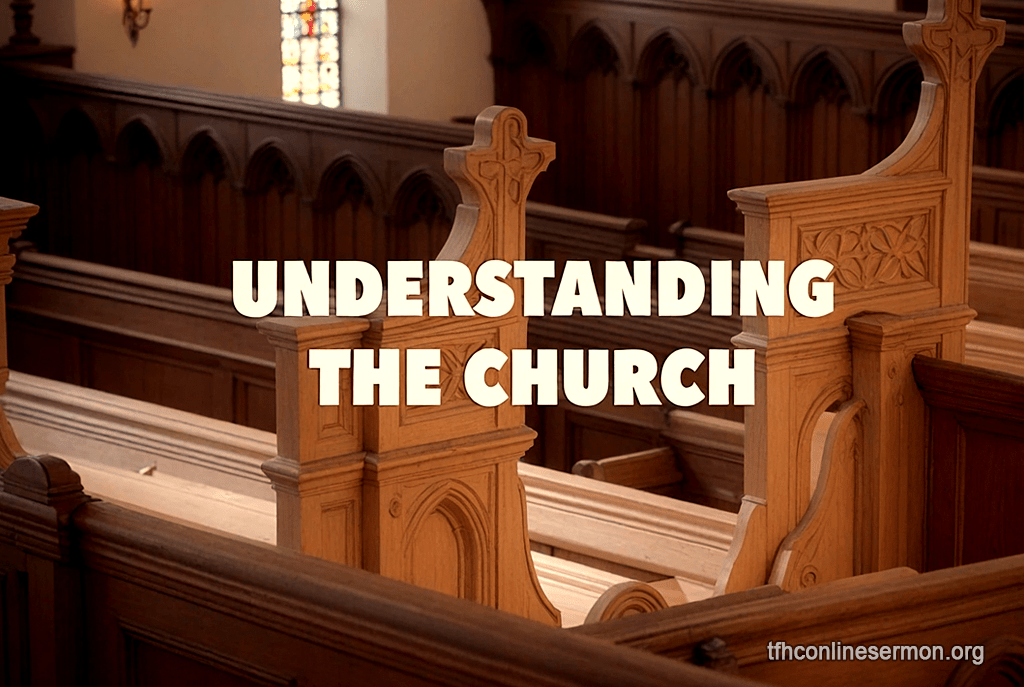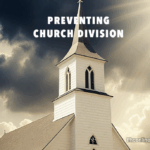
Understanding the Church, scripture references: Deuteronomy 6:22-23; 1 Corinthians 1:2.
Introduction: Understanding The Church
As Christians, we are all definitely familiar with the word or name “Church.” However, the meaning of this term often varies depending on individual perspectives or theological backgrounds. Some believers fail to recognize that they need to identify with and commit themselves to a local assembly for worship and pastoral oversight.
So, in this message, we will explore the concept of the Church from a biblical perspective, aiming to align our lives with the truths revealed in Scripture.
What Is the Church?
A. The Church in the Old Testament
Firstly, the Hebrew word for “church” is KAHAL, which appears approximately 70 times in the Old Testament. It means:
- To summon, assemble, or congregate.
- God’s people called together to listen to or act for Him.
Examples of Being Called Out:
- Abraham was called out of Ur of the Chaldeans (Genesis 12:1; Hebrews 11:8).
- Israel was called out of Egypt, symbolizing a departure from worldly life and religion.
Purpose of the Call:
- To become a peculiar treasure (Exodus 19:5-6).
- To be a chosen and holy nation dedicated to God.
Many believers often tend to refer to the Old Testament Church as the "Church in the Wilderness"
B. The Church in the New Testament
Secondly, the Greek word for “church” is EKKLESIA, used over 150 times in the New Testament. It is a compound word derived from:
- EK – meaning “out of.”
- KALEO – meaning “to call.”
Characteristics of the New Testament Church:
- Called out of darkness into light (1 Peter 2:9).
- Called to a new vocation and standard of life (Ephesians 4:1).
- Called to a feast or celebration (Psalm 23:4-5; Isaiah 25:6-9).
In addition, God calls out His people, which implies the following:
- Belonging – We are God’s possession (1 Peter 2:9-10).
- Availability – A readiness to act or obey.
- Surrender – Prioritizing God above all else.
- Community – A sense of family and shared faith.
- Faith – Trusting in God’s promises (Hebrews 11:6).
The Nature of the Call
Furthermore, the calling of the Church is unique and multifaceted. It is described as:
- A Confident Calling (Hebrews 10:35).
- A Hopeful Calling (Ephesians 4:4), filled with joyful expectation (Proverbs 23:18).
- A High Calling (Philippians 3:14), designed to elevate believers spiritually.
- A Holy Calling (2 Timothy 1:9), set apart exclusively for God.
- A Heavenly Calling (Hebrews 3:1), reflecting the Church’s divine origin and eternal purpose.
The Make-Up of the Church
1. Christ as the Foundation
- Jesus Christ is the founder and builder of the Church (Matthew 16:18).
- The Church is His body, and He is the head (Ephesians 1:22-23; Colossians 2:19).
2. The Universal Body of Believers
The Church comprises:
- Saints Triumphant – Believers who have passed on to heaven (Hebrews 12:22-23).
- Saints Militant – Believers actively living out their faith (Revelation 1:11).
3. Entry into the Church
Membership in the Church is spiritual and begins with salvation:
- Repentance – Turning away from sin (Matthew 3:2; Acts 17:30).
- Faith in God – Trusting in His grace and redemption.
See the table below for further illustration:
| Names given to the Church | Scripture references | Characteristics/attributes within the name |
| Church of God | Frequently referred To | It is God’s church, not ours. |
| Building | 1Corinthians 3:9 Ephesians 2:19-22 | Order, structure and purpose |
| Bride | Revelation 21:9 2Corinthians 11:2 | Love, commitment and union |
| Body | 1Corinthians 10:17 Romans 12:4-5 Ephesians 2:16 Ephesians 4:4 Colossians 3:15 | Function, completeness and interdependence |
| Family | Ephesians 3:15 | Relationship, order, sharing, living together, no pretence, discipline |
| Flock | 1Peter 5:2 Acts 20:28 | Security, feeding, direction and defense |
| Golden lampstand | Revelation 1:20 | Light, safety and protection from darkness |
| God’s field | 1Corinthians 3:9 | We are born to produce and be fruitful |
| God’s fellow-workers | 1Corinthians 3:9 | Responsibility and privilege |
| Mountain of the Lord | Isaiah 2:3 | Solidarity, strength and majesty |
| Pillar | 1Timothy 3:15 | Stability, support and truth. |
Four Key Attributes of the Church
- Unity – Despite denominational differences, the Church is one body (Ephesians 4:3-6).
- Holiness – The Church is consecrated to God (Ephesians 2:21).
- Catholicity – The Church holds the fullness of truth and faith (Colossians 1:18-19).
- Apostolic Foundation – Built on the teachings of the apostles (Ephesians 2:20).
Membership in the Body of Christ
Spiritual Membership
Joining the Church is not like joining a club. It begins with being added to the Lord through repentance and faith.
Once saved, believers are normally placed in a local assembly for fellowship and growth (1 Peter 2:5-9).
God’s Purpose for the Church
God’s ultimate goal is to build a spiritual house for His habitation. This is achieved through:
- Evangelism – Spreading the Gospel to bring others into the fold (Matthew 28:19-20).
- Edification – Building up believers through teaching, worship, and fellowship (Hebrews 10:25).
Choosing a Local Assembly
When selecting a local church, consider the following:
- Salvation Experience – Where you encountered Christ.
- Conviction – A sense of calling to stay.
- Spiritual Leadership – Recognizing the pastor as God’s servant for your life.
- Quality of Ministry – Availability of sound teaching, prayer, and worship.
- Personal Growth – A church that adds value to your spiritual journey.
- Opportunities for Service – A place to exercise your gifts.
- Heavenly Focus – A church that balances earthly relevance with eternal priorities.
Challenges to Church Membership
Many Christians don’t want to be practical church members for different reasons, namely:
- Fear of being hurt by past experiences with church leaders (Ezekiel 34; John 10).
- Fear of legalism or being controlled.
- A desire for independence and self-governance.
- Reluctance to commit financially or be accountable.
the Blessings of Church Membership
Despite the challenges, practical church membership offers numerous blessings:
- Security – A sense of belonging in God’s family.
- Fellowship – Building relationships with other believers.
- Protection – Spiritual oversight and guidance (Hebrews 13:7).
- Nourishment – Receiving the Word of God.
- Discipline – Correction and growth where needed (1 Corinthians 5:13).
- Healing – Ministry of life and health (James 5:14).
- Communion – Sharing in the life of Christ.
- Support – Financial and spiritual contributions leading to blessings (Malachi 3:8-11).
Conclusion: Understanding The Church
The Church is not just a building or an organization; it is a living, spiritual body of believers called out by God for His purpose. Understanding the biblical concept of the Church helps us appreciate its role in our lives and encourages us to commit to a local assembly for worship, fellowship, and growth.
So, by embracing the responsibilities and blessings of church membership, we align ourselves with God’s divine plan for His people.
Understanding The Church Quiz
- YEAR AFTER YEAR– The Promise or Expectation - July 9, 2025
- What To Do While Waiting For Breakthrough - September 26, 2010
- Breakthrough By The Holy Spirit Sermon - September 19, 2010



